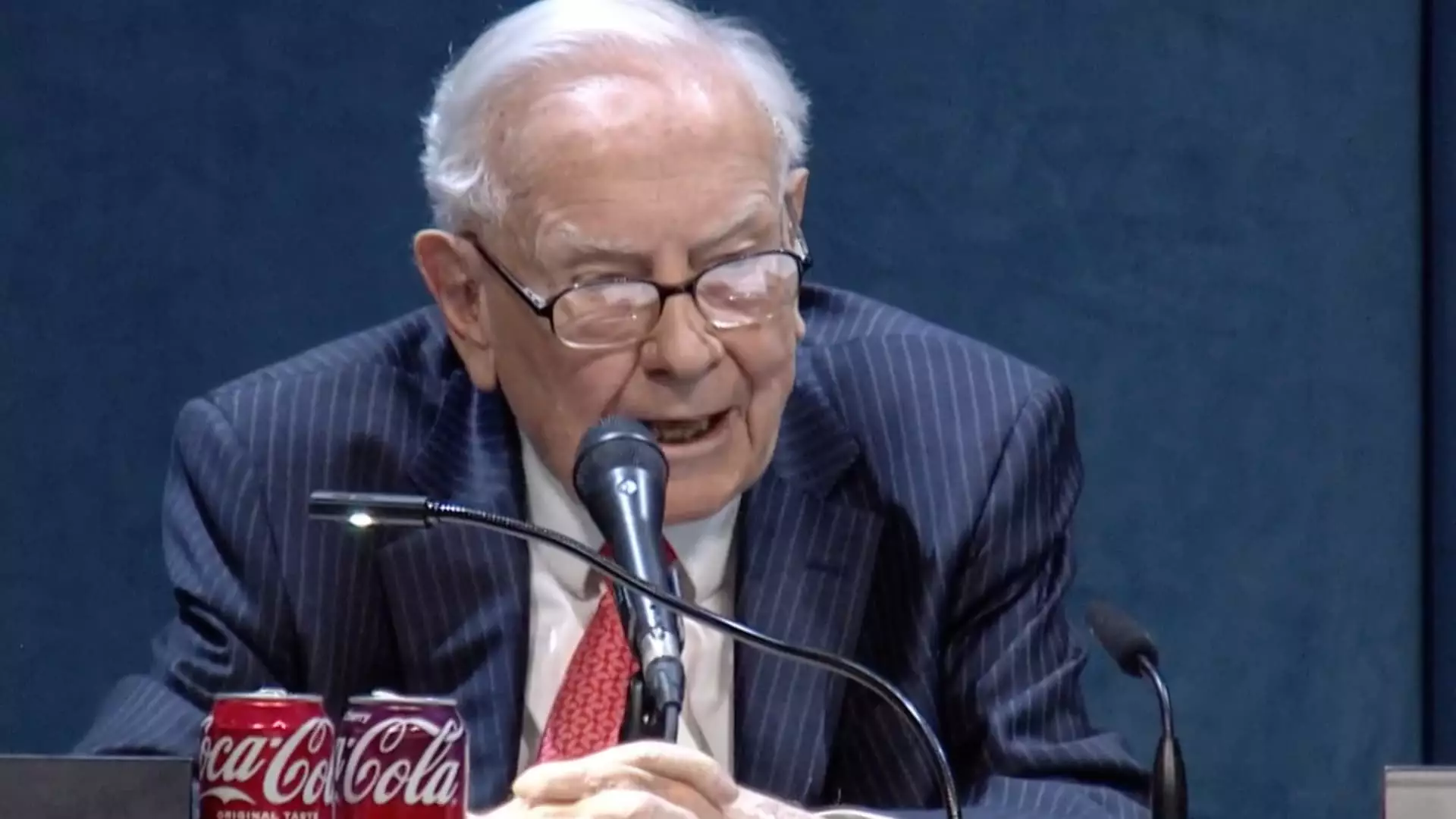Warren Buffett, respected as the “Oracle of Omaha,” recently weighed in on President Trump’s aggressive trade tactics, suggesting that viewing trade as a weapon is a perilous approach. In a landscape where tariffs are wielded like swords, Buffett’s insights remind us that trade should function as a bridge between nations, not a barrier. The damaging rhetoric surrounding trade policies underlines a concerning trend towards isolationism that ignores the benefits of globalization. Trade restriction policies may momentarily please political bases, but they leave lasting scars on international relationships and economic stability.
Buffett’s warnings illuminate a critical truth: societies prosper not only through self-reliance but through cooperative engagement with others. For every job saved through protective tariffs, countless others can be lost in global industries tied to trade agreements. A successful trade environment cultivates peace and interdependence, undermining the idea that making America “great again” requires distancing ourselves from the rest of the world. Buffett’s philosophy emphasizes that prosperity can expand through collaboration rather than combat.
Consequences of the Tariff Wars
The recent imposition of heavy tariffs, particularly on China, has reignited concerns around global economic stability. Buffett argues that these protectionist measures can have implications far beyond immediate financial figures. The trade war is not merely a numbers game; it’s a jab at long-standing international relationships that have been cultivated over decades. As tensions rise, and retaliatory tariffs escalate, we find ourselves navigating uncharted waters that may lead to long-term economic repercussions.
The market’s jittery reactions to Trump’s tariffs highlight a broader reality: businesses depend heavily on international collaboration for supply chains and consumer bases. Businesses aren’t just facing increased costs but are also bracing for a future fraught with uncertainty. Businesses, like personal wealth, thrive on predictability and stability; legislative chaos only serves to undermine investor confidence and stall innovation—a situation that ultimately harms American workers.
Globalization and American Prosperity
Buffett argues that our fortunes are intertwined with those of others around the globe. His assertion resonates with the reality of today’s interconnected economy. Observing the global economic landscape, one must recognize that rising prosperity in other countries does not equate to diminished chances for American growth. On the contrary, a thriving global marketplace can foster local economies, expand small businesses, and create jobs that benefit everyday Americans.
As countries work towards improving living standards and economic resilience, we share in that growth. A robust global economy is a boon for the U.S., driving demand for our exports and reinforcing our position in international trade. Rejecting collaboration is not just counterproductive; it is a critical misstep that risks the very fabric of what defines the modern economy.
The Illusion of Protectionism
Buffett’s concerns extend into the philosophical realm of what protectionism entails. The statistics of tariff percentages may appear concrete, yet the abstract implications reflect a more daunting landscape—one where animosity brews alongside ignorance. Navigating the complexities of trade relationships should not become a twisted kind of nationalism that ultimately creates division rather than unity.
The notion that tariffs can shield American interests overlooks a fundamental fact: obstacles to trade create obstacles to growth. The imposition of these tariffs aims to provide short-term relief but can deliver long-term jeopardy instead. Industries crumble under the weight of artificially inflated costs, and consumers face rising prices, making it increasingly clear that the fight for economic supremacy through protectionist measures could backfire spectacularly.
Lessons from an Economic Legend
Buffett’s perspective not only reflects deep market understanding but serves as a reminder of the importance of thoughtful dialogue in economic policy. His comments challenge us to consider the broader implications of our political actions, steering us towards an enlightened approach to trade, where collaboration eclipses conflict. Emphasizing the interconnectedness of our global ecosystem, Buffett advocates for policies focused on mutual growth rather than divisive maneuvers.
In contending that we should not treat international trade as a zero-sum game, he opens a constructive pathway towards a future where both the U.S. and other nations can thrive. A dialogue centered on cooperation rather than strife, led by voices like Buffett, is crucial in reshaping the narrative around trade in contemporary politics.

Leave a Reply